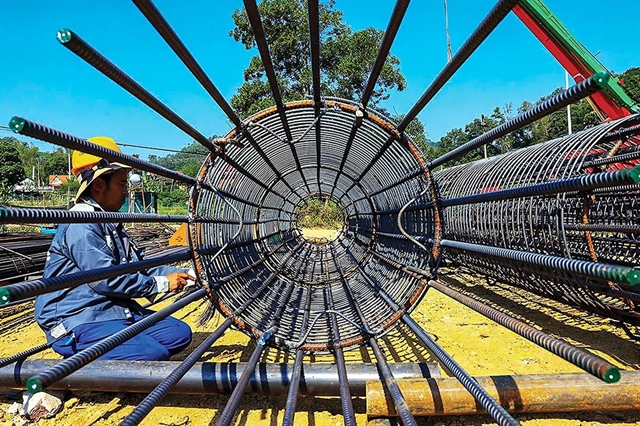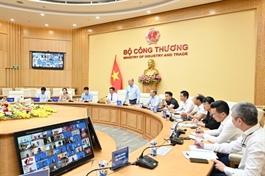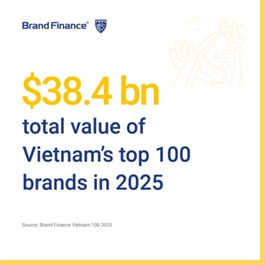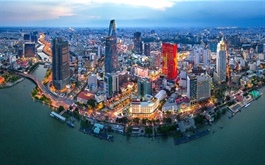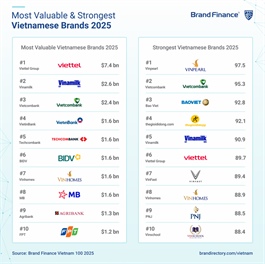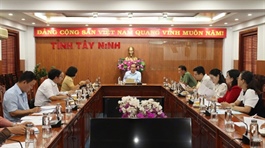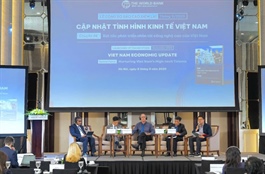Major changes proposed to investment approval process
Major changes proposed to investment approval process
The government is considering major adjustments to its investment policy approval process, with a new draft law aiming to ease procedures and attract more capital.
The Ministry of Finance is drafting a new Law on Investment to replace the current framework, proposing significant changes to how projects are approved. The Vietnam Chamber of Commerce and Industry (VCCI), representing the business community, has voiced strong support for narrowing the scope of projects that require investment policy approval, saying the move would help reduce unnecessary bureaucracy and improve the investment climate.
According to VCCI, this change would eliminate a substantial number of administrative procedures, reducing both time and resource burdens for enterprises and state management agencies alike.
The latest draft outlines clear criteria for projects exempt from the investment policy approval process.
|
Accordingly, investment projects eligible for the exemption include those already specified in national or provincial master plans with clearly defined project names, scale, objectives, locations, investors, timelines, and durations.
Also exempt are ventures where investors are selected via land-use rights auctions or bidding processes for land-use projects, among other investor-related circumstances.
Essentially, the investment policy approval procedure would remain applicable only to projects with significant or potentially severe environmental impacts; projects affecting national defence and security; and investments in strategic sectors such as seaports and airports.
Debate over whether to retain or abolish this procedure has been intense. Advocates of abolition argue that the process lacks clear regulatory objectives, is inefficient, unpredictable, and overlaps with other legal requirements.
On the other hand, critics caution that removing this step could undermine state oversight, expose businesses to legal risks, and negatively affect the investment climate.
Investment policy approval serves as a legal foundation that affirms and protects investors’ legitimate rights and interests in implementation. It ensures the enforcement of state commitments regarding investment incentives and special policies approved by competent authorities, while also outlining the requirements and conditions for execution.
Moreover, the procedure functions as a screening tool for sensitive projects that could significantly affect the country’s socioeconomic development, national defence, and the environment. It serves as a control mechanism to ensure safety and encourage sustainable development.
International experience shows that many countries – including the US, the UK, Australia, and China – apply comparable approval or screening mechanisms for overseas investment, using criteria similar to those mentioned above
However, in Vietnam, numerous legal amendments across areas such as land, bidding, planning, housing, real estate, electricity, and science and technology more recently, have led to substantial legal updates.
These changes, along with current procedures under the Law on Investment, have created overlapping requirements and operational difficulties for both investors and regulatory bodies.
This underscores the urgent need to revise and improve the investment policy approval process to resolve these challenges and accelerate project implementation.
The goal is to align the process more closely with related legal frameworks, ensuring consistency and coherence across the regulatory environment.
Because the investment policy approval procedure integrates content across planning, land use, environmental protection, and construction, the investment authority can conduct a comprehensive assessment during the preparation phase. This helps reduce time and cost compared to processing each requirement independently.
Additionally, the procedure enables investment authorities to evaluate a project in its entirety, considering compliance with sectoral regulations and assessing its socioeconomic effectiveness and feasibility.
Importantly, the inclusion of the investment policy approval procedure within the Law on Investment ensures consistency and coherence across the legal system.
It prevents fragmentation and inconsistency in project implementation procedures across different specialised laws, fostering a transparent, accessible, and predictable investment environment for both domestic and foreign investors.
To optimise the process, businesses continue to call for a clearer and more streamlined approach to policy evaluation and approval, noting that any proposed changes must be framed within the broader legal system governing projects to ensure clarity, legal certainty, and coherence across legislative documents.
- 15:26 12/09/2025


